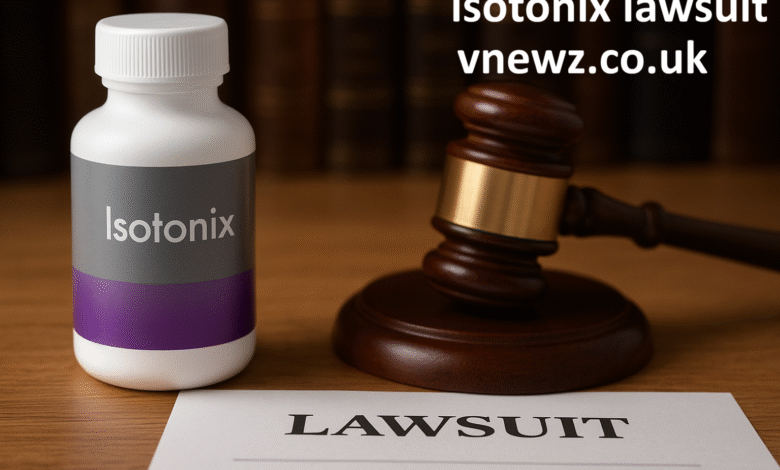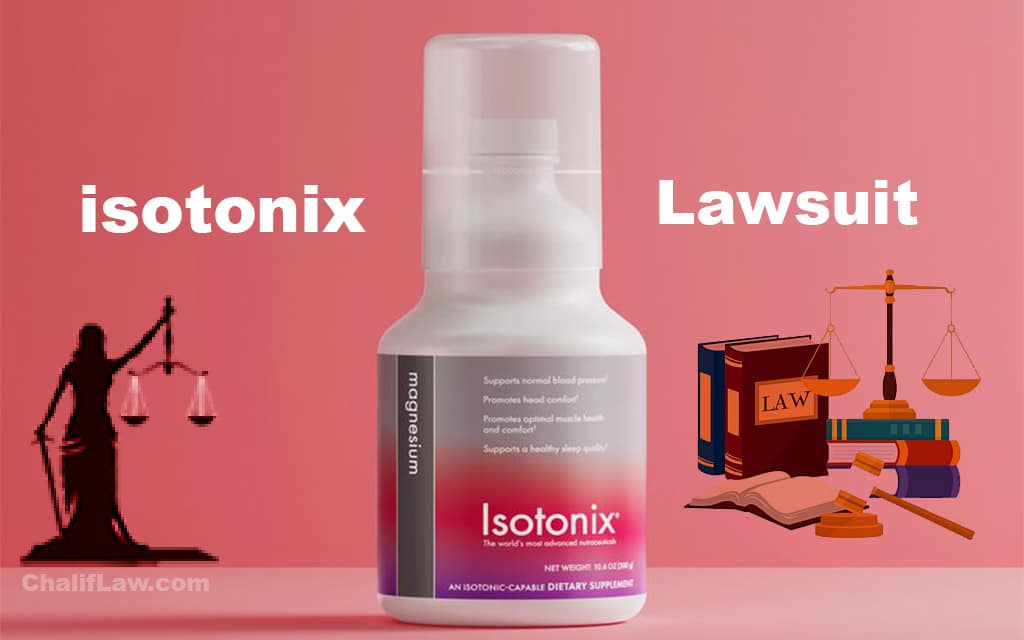Isotonix Lawsuit: Full Breakdown, Legal Updates & What It Means for Consumers

The dietary Isotonix Lawsuit supplement industry has faced increasing scrutiny in recent years, with several high-profile legal battles capturing consumer attention. Among these cases, the Isotonix lawsuit has emerged as a particularly significant example of the complex legal challenges facing supplement manufacturers today. This comprehensive breakdown examines the current legal situation surrounding Isotonix products, their parent company Market America, and what these developments mean for consumers who rely on these supplements.
What Is Isotonix and Who’s Behind It?
Isotonix represents a line of dietary supplements manufactured and distributed by Market America Inc., a multi-level marketing company founded in 1992. The Isotonix brand has gained popularity for its unique isotonic delivery system, which claims to provide superior nutrient absorption compared to traditional pills or capsules. The Isotonix Lawsuit product line includes various supplements such as OPC-3 (oligomeric proanthocyanidins), multivitamins, Omega III fatty acids, and B-complex vitamins.
Market America operates through a network marketing model, where independent distributors sell products directly to consumers while also recruiting additional sellers. This business structure has become central to many of the legal challenges the company currently faces, as critics argue it resembles a pyramid scheme Isotonix Lawsuitmore than a legitimate retail operation.
Core Allegations in the Isotonix Lawsuit
The primary allegations in the Isotonix lawsuit center on false advertising and deceptive marketing claims. Plaintiffs argue that Market America exaggerated product benefits and misled consumers about the effectiveness of Isotonix Lawsuit their supplements, making unsubstantiated claims regarding the benefits of its supplements and inducing consumers to purchase the products under false impression.
Specifically, the lawsuit challenges claims of superior nutrient absorption and health benefits that allegedly lack sufficient scientific evidence. The legal action also addresses concerns about the company’s multi-level marketing structure, with some plaintiffs arguing that the business model prioritizes recruitment over Isotonix Lawsuit actual product sales, potentially constituting an illegal pyramid scheme.
FDA Warning Letters and Regulatory Issues
The Food and Drug Administration has issued warning letters to Market America, identifying that several Isotonix products including OPC-3, Heart Health Essential Omega III, Multivitamin, and Activated B-Complex are misbranded dietary supplements because they do not comply with labeling requirements. These regulatory Isotonix Lawsuit actions have significantly impacted the company’s reputation and raised questions about product safety and marketing practices.
In February 2020, the FDA sent a warning letter to Market America Inc for failure to submit serious adverse event reports about two of its products, as required by federal regulation. This regulatory oversight highlights Isotonix Lawsuit the importance of proper reporting procedures in the supplement industry and demonstrates the FDA’s active role in monitoring dietary supplement safety.
Current Legal Status and Recent Developments
As of July 2025, the Isotonix class action lawsuit remains active in federal court, with both sides currently in the pre-trial phase exchanging evidence. The ongoing litigation involves multiple legal issues, including allegations of false advertising, deceptive income claims made to distributors, and concerns about the company’s multi-level Isotonix Lawsuit marketing structure.
The case has attracted attention from consumer protection advocates and industry observers, as its outcome could set important precedents for how dietary supplement companies market their products and structure their sales organizations. Legal experts suggest that the resolution of this case may influence regulatory Isotonix Lawsuit approaches to similar companies in the future.
Impact on Consumers and Product Safety

For consumers currently using Isotonix products, the Isotonix Lawsuit raises important questions about product efficacy and the reliability of marketing claims. While the legal proceedings don’t necessarily indicate that the products are unsafe, they do highlight the importance of critically evaluating health claims made by supplement manufacturers.
The controversy surrounding Isotonix also underscores broader issues within the dietary supplement industry, where regulatory oversight is often less stringent than for pharmaceutical products. Consumers should be aware that dietary supplements are not required to undergo the same rigorous testing as prescription medications before reaching the market.
What This Means for Multi-Level Marketing Companies
The Isotonix lawsuit includes allegations of operating a pyramid scheme under the guise of a multi-level marketing structure, where recruitment of new members is prioritized over the actual sale of products. This aspect of the case has significant implications for the broader MLM industry, as regulatory authorities increasingly scrutinize these business models.
The legal challenges facing Market America serve as a cautionary tale for other MLM companies, highlighting the importance of maintaining compliant business practices and ensuring that income opportunities are based on legitimate product sales rather than recruitment activities.
Consumer Protection Considerations
The Isotonix lawsuit emphasizes the critical importance of consumer due diligence when purchasing dietary supplements. Consumers should research companies thoroughly, look for third-party testing and certifications, and be skeptical of extraordinary health claims that seem too good to be true.
Additionally, the case highlights the value of reporting adverse events to the FDA and other regulatory authorities. Consumer reports of side effects or problems with supplements play a crucial role in identifying potential safety issues and ensuring appropriate regulatory action.
Industry-Wide Implications
The legal challenges facing Isotonix and Market America reflect broader trends in dietary supplement regulation and enforcement. As consumer awareness of health and wellness continues to grow, regulatory authorities are paying increased attention to marketing claims and business practices within the supplement industry.
This increased scrutiny is likely to result in stricter enforcement of existing regulations and potentially new rules governing how supplements can be marketed and sold. Companies that fail to maintain transparent, evidence-based marketing practices may face similar legal challenges in the future.
Financial and Market Impact
The ongoing legal proceedings have created uncertainty around Market America’s business operations and may impact the company’s distributors and customers. Legal costs, potential settlements, and reputation damage can significantly affect a company’s financial stability and market position.
For distributors within the Market America network, the lawsuit raises questions about the long-term viability of their business relationships and the potential impact on their income streams. The uncertainty surrounding the legal proceedings may also affect consumer confidence in the brand and its products.
Looking Forward: What Consumers Should Know
As the Isotonix lawsuit continues to progress through the legal system, consumers should stay informed about developments that may affect their health and financial interests. Those who have experienced adverse effects from Isotonix products or believe they were misled by marketing claims should consider consulting with legal professionals about their options.
The case also serves as an important reminder for consumers to approach dietary supplements with appropriate caution, consulting healthcare providers before starting new supplement regimens and maintaining realistic expectations about potential benefits. The outcome of this lawsuit may provide valuable precedents for consumer protection in the dietary supplement industry and could influence how similar products are marketed and regulated in the future.
Conclusion
The Isotonix lawsuit represents a significant legal challenge that extends beyond a single company to encompass broader questions about dietary supplement marketing, multi-level marketing practices, and consumer protection. While the ultimate resolution of these legal proceedings remains uncertain, the case has already highlighted important issues that affect consumers, regulators, and the supplement industry as a whole.
Consumers should use this situation as an opportunity to become more informed about the products they use and the companies behind them. By staying educated about regulatory developments and maintaining realistic expectations about supplement benefits, consumers can make more informed decisions about their health and wellness investments. The ongoing legal proceedings will likely provide additional clarity about acceptable business practices in the dietary supplement industry and may result in enhanced consumer protections going forward.

